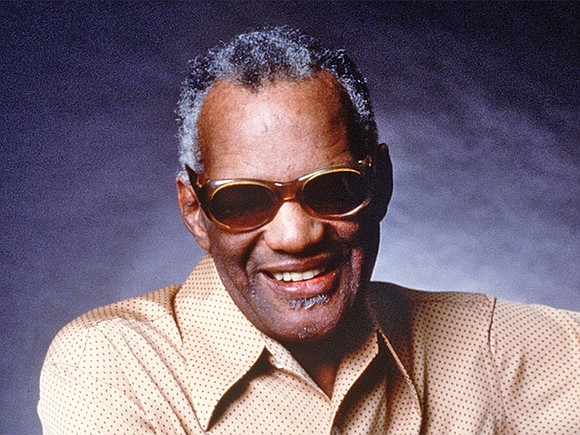Ray Charles to be inducted into Country Music Hall of Fame
Free Press wire reports | 8/19/2021, 6 p.m.
NASHVILLE, Tenn. - R&B legend Ray Charles, who helped redefine country music in the civil rights era will be inducted into the Country Music Hall of Fame.
The Country Music Association on Monday announced the new class of Hall of Fame members, who will be formally inducted in a ceremony in 2022.
Also being inducted are the Grammy-winning duo The Judds, drummer Eddie Bayers and pedal steel guitarist Pete Drake.
Mr. Charles, who died in 2004, showed the commercial potential of country music when he released “Modern Sounds in Country and Western Music” in 1962, a genre-defying personal project for the Georgia-born singer and piano player.
Mr. Charles grew up listening to the Grand Ole Opy and his record, which was considered a risk at the time, became one of the best-selling country albums of the era. His version of “I Can’t Stop Loving You” spent five weeks on top of the Billboard 100 chart and remains one of his most popular songs.
He later recorded an album of duets featuring country legends such as Willie Nelson, Merle Haggard and Johnny Cash. Mr. Nelson in particular has lauded Mr. Charles’ impact on the genre and they had a 1985 No. 1 duet together called “Seven Spanish Angels.”
“Needless to say, Ray Charles loved country music,” Valerie Ervin, president of the Ray Charles Foundation, said in a statement. “As a matter of fact, he risked a lot in 1962 when he decided to record ‘Modern Sounds in Country and Western Music.’
“I cannot express enough how happy and honored Ray Charles would be at this moment in time, as I am for him,” her statement continued. “Congratulations to all the fellow inductees and as Ray Charles would say, ‘That is so nice.’ ”
Through the years, Mr. Charles’ impact on country music has been more widely recognized, with a major museum exhibition on Mr. Charles at the Country Music Hall of Fame and Museum and a 2019 Opry television special dedicated to him.
Naomi Judd and her daughter, Wynonna, were the most successful duo in country music in the 1980s, with more than a dozen No. 1 hits, including “Mama, He’s Crazy,” “Love Can Build a Bridge” and “Grandpa (Tell Me ’bout the Good Old Days).”
“We had a such a stamp of originality on what we were trying to do,” Naomi Judd said in an interview after the announcement.
Originally from Kentucky, Naomi Judd was working as a nurse in the Nashville area when she and Wynonna started singing together professionally. Their unique harmonies, together with elements of acoustic music, bluegrass and blues, made them stand out in the genre at the time.
The Judds released six studio albums and an EP between 1984 and 1991 and won nine CMA Awards and seven from the Academy of Country Music. They earned a total of five Grammy Awards together on hits like “Why Not Me” and “Give A Little Love.”
In 1990, Naomi Judd announced her retirement from performing due to chronic hepatitis. Wynonna has continued her solo career and they have occasionally reunited for special performances.
The Hall of Fame also announced a tie this year for the category of recording musician between Eddie Bayers and Pete Drake.
Mr. Bayers, a drummer in Nashville for decades who worked on 300 platinum records, is a member of the Grand Ole Opry band. He regularly played on records for The Judds, Ricky Skaggs, George Strait, Alan Jackson and Kenny Chesney. Mr. Bayers is the first drummer to be inducted in the Country Music Hall of Fame.
Mr. Drake, a pedal steel guitar player and a member of Nashville’s A-team of skilled session musicians, played on hits like “Stand By Your Man” by Tammy Wynette and “He Stopped Loving Her Today” by George Jones. Mr. Drake, who died in 1988, is the first pedal steel guitar player to be inducted into the Country Music Hall of Fame.
Mr. Drake’s widow, Rose Drake, said that her husband’s work with George Harrison and Peter Frampton introduced a whole new audience to the sound of the steel guitar.







